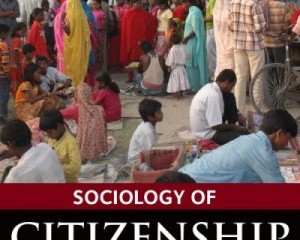
The Sociology of Citizenship
Political theorists, sociologists and anthropologists are increasingly open to the idea that citizenship goes beyond the legal status conferred by states upon individuals in a national political community. The contributors to this series will focus on the concrete, empirical ways in which people make meaning of citizenship and the manner in which they forge and imagine membership in the political community. Contributors will draw on their on-going research in different parts of the world, including South Asia, the Middle East, Eastern Europe, Africa and Latin America.

A sociology of citizenship: preliminary reflections
Social scientists most commonly view citizenship as a juridical status conferred by states upon individuals in a national community. TH Marshall’s (1950) formulation most famously helped analysts to unpack its political, civil and social dimensions.
Marshall’s formulation has since been held up to critical scrutiny for the manner in which it foregrounded citizenship as a regime of rights. In her critique of Marshall’s account, Margaret Somners (1993: 589) reminds us that citizenship refers to an ensemble of “institutionally-embedded social practices”. The idea of citizenship as practice and process has since been emphasized by many a political theorist (Beetham, 1999; Heater, 1999; Mouffe, 1996). Such perspectives have made possible further sociological investigations into citizenship. What does citizenship actually mean to the people upon whom it is conferred as a legal status? With what meanings do people who claim it, either through petition or through struggle, imbue it? The viewpoint that citizenship is an ensemble of practices enables scholars to investigate the concrete ways in which states fashion citizens (Ong, 1999) as well as the ways in which people forge their collective selves as citizens (Lazar and Nuitjen, 2013).
In examining the latter, scholars remain divided about the centrality of the state.









